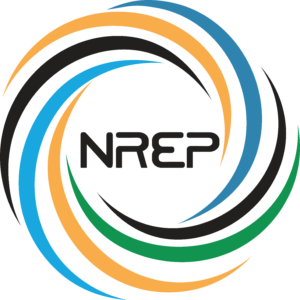NREP Highlights
UNBS Develops New Standards For Clean And Renewable Energy Products
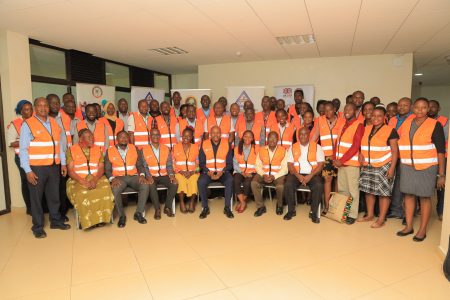
The Uganda National Bureau of Standards (UNBS) together with the Ministry of Energy and Mineral Development and the National Renewable Energy Platform (NREP), initiated the development of new standards aimed at regulating and promoting the adoption of clean and renewable energy systems on both local and international markets. This was revealed during a sensitization workshop held at UNBS headquarters on standards and product certification in the clean cooking sub-sector involving UNBS, MEMD, NREP, Micro Small and Medium Enterprises (MSMEs) in the clean cooking technologies and fuels sub-sector, and other clean energy stakeholders. According to UNBS officials, the standards cover a wide range of renewable energy technologies including solar photovoltaic (PV) systems, biogas units, mini-hydro systems, and energy-efficient appliances. The standards are expected to provide technical guidelines on design, installation, maintenance, and performance.
Innovative Finance Workshop
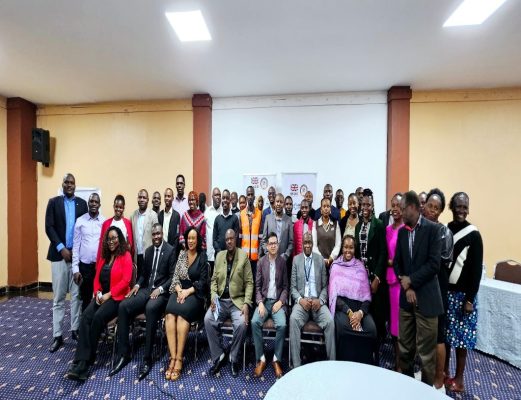
On May 7, 2025, the National Renewable Energy Platform (NREP), in partnership with the Ministry of Energy and Mineral Development and supported by the UK Government, convened leading stakeholders at the Silver Springs Hotel in Bugolobi. The purpose of the workshop was to explore innovative financing mechanisms that can accelerate the growth of Uganda’s clean energy sector—spanning energy entrepreneurs, policymakers, financiers, community organizations, and clean cooking advocates .
From Skepticism to Support: How Traditional Meals Cooked Electrically Won Over Kabale
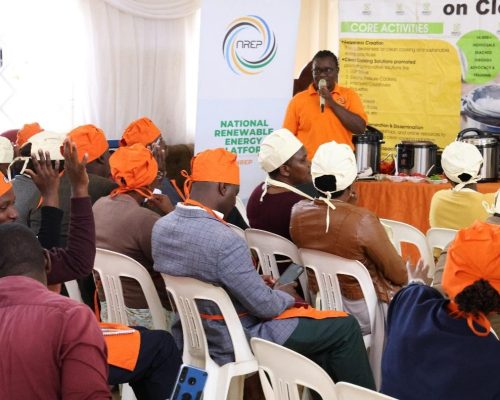
Kabale City in southwestern Uganda known for its rich food culture, has for generations long relied on wood and charcoal to prepare staples like kalo, matooke, Irish potatoes, and beans. Although electric cooking as an alternative has existed for a while, many residents remain skeptical of its ability to handle these traditional meals or preserve their familiar taste.
Students and educators take the lead at Luwero Clean Cooking event, signaling a shift towards sustainable practices
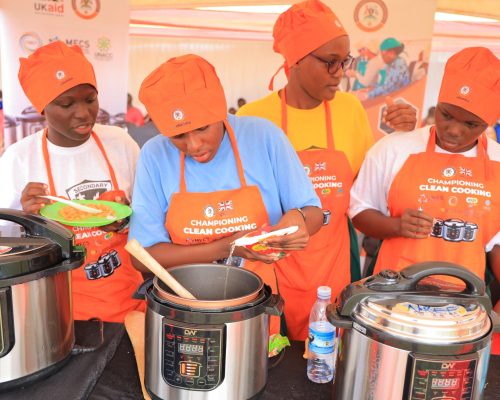
Hosted at the Luwero District Headquarters, the event set out to break misconceptions about Electric Pressure Cookers (EPCs) and champion their integration into everyday cooking practices. The initiative drew a diverse and engaged audience, including students, local authorities, faith leaders, healthcare professionals, and development partners ,all united by a common goal: advancing climate action and promoting energy-efficient solutions within households and institutions.
Championing Clean Cooking in Kikuube: A Step towards Healthier, Greener Communities
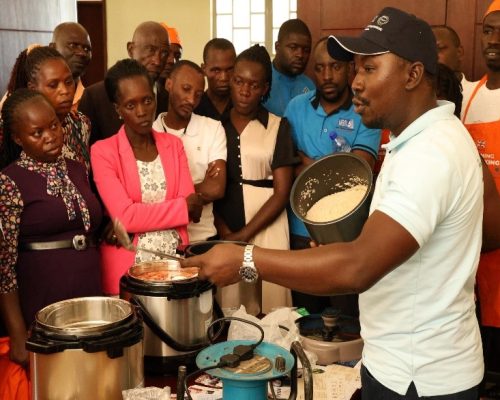
The campaign aimed to promote the use of clean and sustainable cooking technologies such as Liquefied Petroleum Gas (LPG) and Electric Pressure Cookers (EPCs) among institutions and households. The event brought together 48 stakeholders including district leaders, health workers, school administrators, religious leaders, and partners like Stabex International.
Renewable Energy Competition, 2025
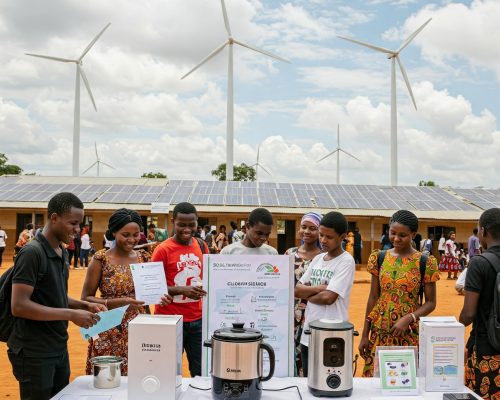
The 3rd Renewable Energy Competition is a joint initiative by the National Renewable Energy Platform (NREP) and STEPUP Standard Limited aimed at engaging young people in activities that drive behavior change and adoption of clean-cooking technologies across Uganda.
Over 88% of cooking fuel in Uganda is obtained from biomass energy, majorly firewood and charcoal. This consumption rate worries sustainable initiatives, coupled with health challenges arising from indoor air pollution and continuous exposure to smoke.
Through this competition, we aim to create awareness, clear misconceptions, and showcase the benefits of clean cooking through tailored messages and community engagement, contributing to the National Development Plan IV target of increasing clean energy use for cooking from the current 25% to 50% by 2030.
RE Sector Highlights Around the Region and Globe
1. Financing Green Energy solutions for Agricultural value chains in Uganda
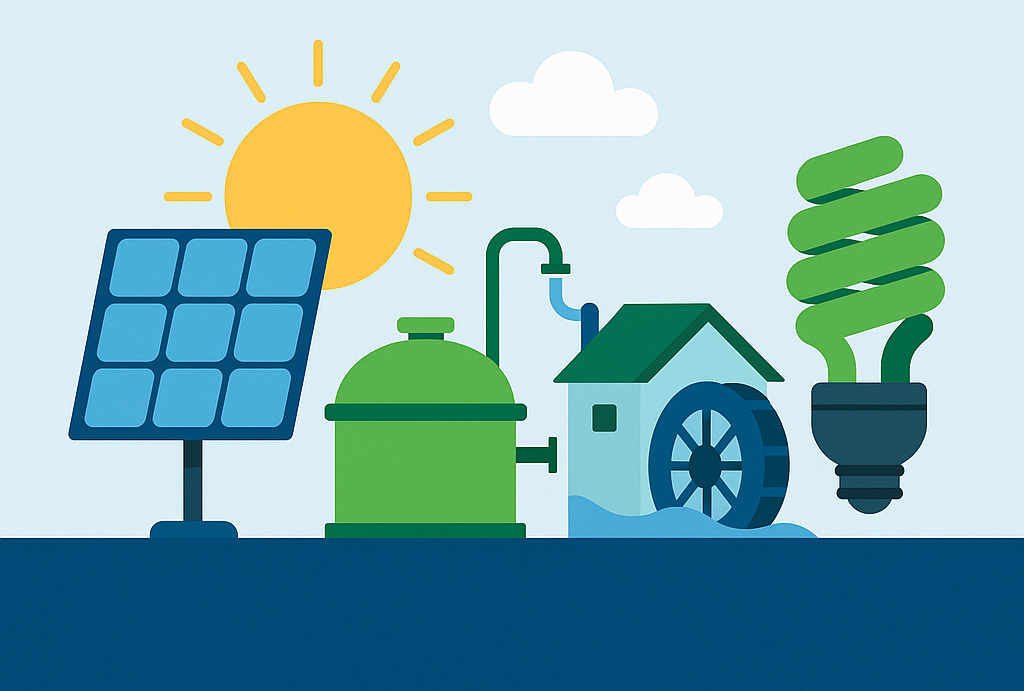
Uganda possesses abundant renewable energy resources that can be harnessed for energy production and the provision of energy services. These include hydro, solar, nuclear, geothermal, wind and biomass among others. However, there is a significant constraint on utilisation and access to both untapped energy resources, both on and off-grid. Currently, the hydropower sector is Uganda’s largest source of renewable electric energy, yet still about 32% of the population has no access to any form of electricity, and merely 24% have access to electricity for more than 4 hours per day (GIZ, 2022). The unreliability nature of the electricity downplays efforts to promote clean cooking and carbon- neutral solutions, including achieving the Nationally Determined NDCs. Among all renewable energy sources, solar energy in Uganda has the highest adoption rate, offering a viable solution to scale up energy access in rural areas and villages in the country, where on-grid power is still inaccessible and unreliable. A key driver of renewable energy is increasing access to financing.
2. Uganda’s schools embrace safer, cleaner cooking
)
Uganda is taking a major step towards cleaner, safer, and more sustainable cooking solutions in schools with the introduction of Shell Gas. This move aligns with the Ministry of Energy and Mineral’s directive to phase out traditional cooking fuels like firewood and charcoal, addressing the environmental issues of deforestation and the health risks associated with smoke exposure. The initiative aims to provide schools with a modern cooking solution that reduces carbon emissions and promotes a healthier environment for students and staff. The comprehensive Shell Gas package offered to schools includes high-capacity gas tanks, installation systems, gas cylinders, cookers, and safety equipment such as fire extinguishers and emergency shut-off valves.
3. Second chance can be a catalyst for Uganda’s clean energy transition

The government and mining company must ensure transparency. Uganda’s energy sector stands at a critical crossroads. As the country seeks to meet its growing energy needs, it must also confront the challenges posed by climate change and the imperative for environmental sustainability. The recently announced plans by the Ministry of Energy and Mineral Development to resume operations at the historic Kilembe Mines in western Uganda present a unique opportunity. Kilembe Mines, once the backbone of Uganda’s copper and cobalt industry, has been dormant for over four decades. Its revival is now driven by the surging global demand for critical transition minerals like copper and cobalt, essential inputs for renewable technologies such as solar panels, wind turbines, and electric vehicle batteries.
4. Why clean cooking remains a dream for many in Acholi

Despite government efforts to promote clean energy over the past !ve years, access to clean cooking options remains out of reach for many households and institutions in Acholi Sub-region. Government initiatives, including the February 2024 introduction of the Energy Efficiency and Conservation Bill, aim to reduce energy waste and deforestation by promoting technologies such as improved cook stoves, biogas systems, and electric cookers. The Bill proposes !nancial incentives and subsidies to improve access, especially in rural areas. But on the ground, barriers persist. “Clean cooking is a great idea,” said Rev Can Othniel Ayela Okot, the Vicar of Christ Church in Gulu. “But it’s pointless if people don’t have electricity. Many homes here are still in the dark,” he said. Rev Ayela emphasised that unless electricity reaches rural communities, clean energy options such as electric stoves will remain out of reach.
5. African Development Bank approves $8.79 million to boost clean cooking in Uganda
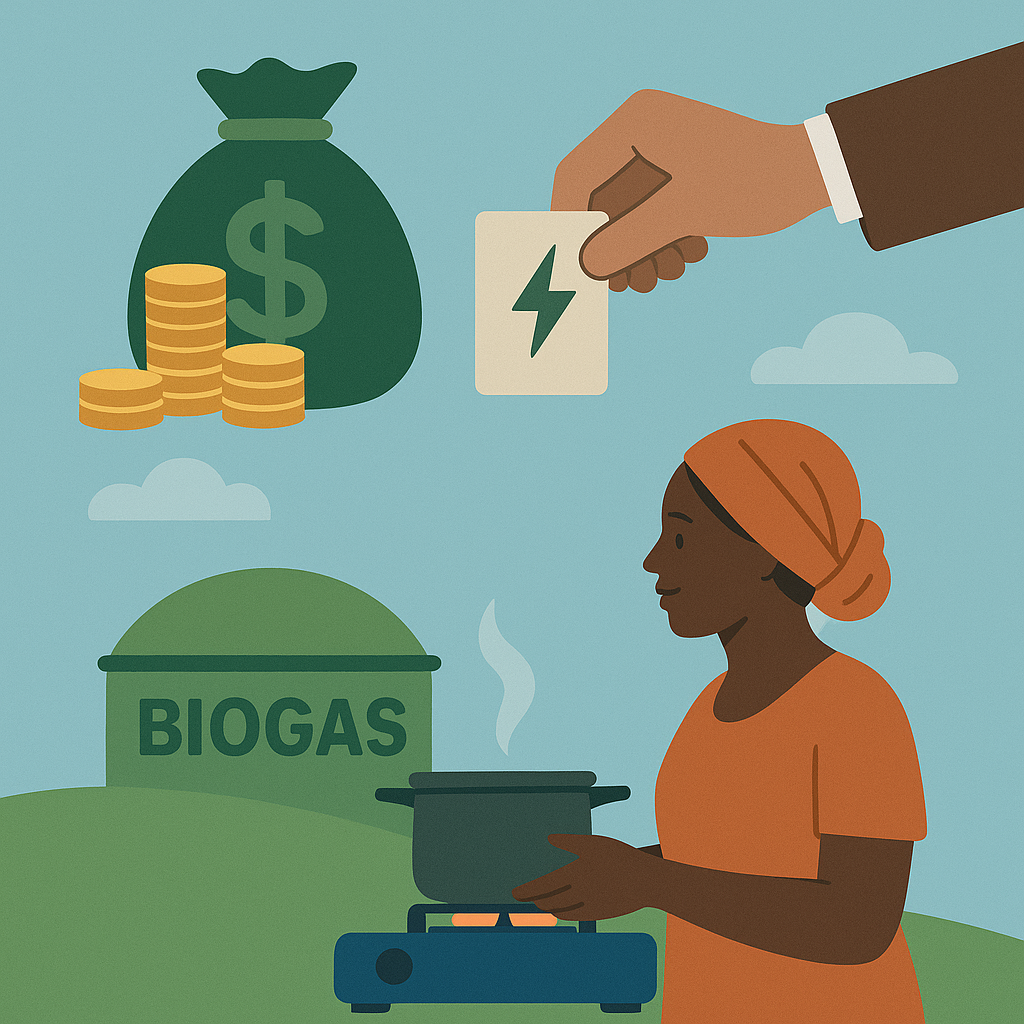
The African Development Bank Group has recently approved $8.79 million in financing for the Uganda Biogas and Electric Cooking Project (UBEP), an ambitious initiative to expand clean cooking access across the country. Currently, 89 percent of Ugandans rely on unsustainable biomass – such as fuelwood and charcoal – for cooking. This widespread dependence is accelerating deforestation and worsening indoor air pollution, contributing to a projected annual wood biomass deficit of over 100 million tons. UBEP aims to address this challenge through a multi-pronged approach. The project will invest in biogas plants for public institutions and electric cooking appliances primarily for urban households. Additionally, awareness campaigns seek to encourage behavioral changes, and technical trainings for SMEs and individual technicians will improve operational sustainability.
Upcoming Events
Media Training on Clean Cooking (May 30th – July 11th, 2025)
The National Renewable Energy Platform (NREP), in partnership with key stakeholders, is set to roll out a Media Training on Clean Cooking from May 30th to July 11th , 2025. This training is part of the Behaviour Change Communication on Electric Cooking (BCCeC) Project and aims to build the capacity of media professionals to report effectively on clean cooking technologies. The program features a mix of virtual sessions, a field visit on July 4th , and a final in-person session on July 11th, blending theory with practical insights to promote informed, engaging, and impactful storytelling around clean cooking. Interested participants (excluding facilitators) are encouraged to register via the link below: This training is a strategic step toward fostering public awareness and supporting Uganda’s clean energy transition.
USEA National Solar Expo 2025 – 2nd Edition!
The Uganda Solar Energy Association(USEA) is thrilled to announce the 2nd Edition of the USEA National Solar Expo 2025 – Uganda’s premier event for solar and renewable energy innovation! This year’s expo will bring together industry leaders, policymakers, innovators, and energy enthusiasts to explore the latest advancements and opportunities in solar energy and sustainability.
What to Expect:
- Cutting-edge solar technologies & solutions
- Expert panels & insightful discussions
- Networking with key stakeholders
- Strategies for a greener, sustainable future
Date: 28th – 30th August 2025
Location: Kampala, Uganda
3rd Edition of Power & Elec Uganda 2025
The 3rd Edition of Power & Elec Uganda, the Largest Power, Energy, Electrical, Electronics, Lighting, Solar & Other Renewables focused International Exhibition in Uganda will be taking place from the 10-12 July, 2025 at the Multi – Purpose Hall in UMA Show Grounds, Kampala. The exhibition will be the gateway to the East African Business Community in Uganda. The event will be hosting Power & Elec Professionals, Importers & Exporters, Wholesalers and Decision Makers of the East African Region in Uganda. Exhibitors from around 8+ countries will be participating in this exhibition looking to explore the untapped potential of the East Africa Market in Uganda.
Be Where Innovation Meets Impact
Join us at upcoming NREP events designed to spark ideas, foster partnerships, and shape a sustainable future.
Funding Opportunities
GET.invest Finance Advisory
As the Team Europe One Stop Shop, GET.invest provides flexible advisory services, supporting your project or company to become investment ready and access financing that aligns with your needs.
Digital Energy Challenge
The aim of the Digital Energy Challenge is to support the development of innovative solutions for increased energy access, to facilitate the integration of renewable energies and to improve energy operators’ performance.
D-Prize Challenge
Startup grants of up to $20,000 are available for entrepreneurs launching new organizations. The goal is to increase the number of social impact ventures—whether for-profit, NGO, or charity—focused on addressing extreme poverty in low- and middle-income countries.
OPEN Fund for Women-Led Energy Businesses
Women entrepreneurs in the energy sector can apply for up to $100,000 in investment to scale their clean energy businesses.
Productive Use Financing Facility
A program by Karlsruhe Institute of Technology (KIT) and Circle Innovation supporting GreenTech, HealthTech, AgriTech, and e-mobility start-ups with tech development, market validation, and access to Germany’s innovation ecosystem.


